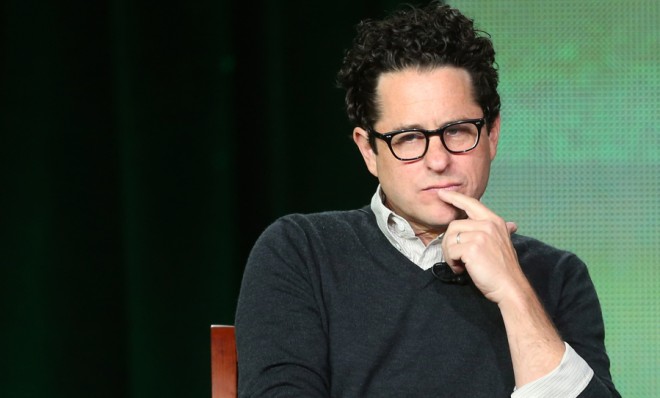Hey, J.J. Abrams: It's time to open up the mystery box
The director's entire career has been built on maintaining mystery at all costs — and it's starting to hurt his storytelling


Five years ago, Lost creator J.J. Abrams gave a now-famous speech at TED Talks that summarized his entire approach to storytelling. In a childhood trip to Lou Tannen's Magic Store, Abrams bought a "mystery magic box" — a box that has always remained a mystery.
"I bought this decades ago, but if you look at this, you'll see it's never been opened. Ever," said Abrams. "Why have I not opened this, and why have I kept it?… It represents infinite possibility. It represents hope. It represents potential. What I love about this box — and what I realized I sort of do, in whatever it is that I do — is I find myself drawn to infinite possibility and that sense of potential. And I realize that mystery is the catalyst for imagination... What are stories besides mystery boxes?"
In the years since that speech, Abrams has consistently applied the "mystery box" approach to projects like Cloverfield, Super 8, and Star Trek Into Darkness. But none of those projects can rival the inscrutability of "Stranger," the minute-long teaser he released yesterday:
The Week
Escape your echo chamber. Get the facts behind the news, plus analysis from multiple perspectives.

Sign up for The Week's Free Newsletters
From our morning news briefing to a weekly Good News Newsletter, get the best of The Week delivered directly to your inbox.
From our morning news briefing to a weekly Good News Newsletter, get the best of The Week delivered directly to your inbox.

Despite featuring nothing more than a corny voiceover, a guy crawling around in water, and another guy with his mouth sewn shut, "Stranger" has already amassed more than a million views. But YouTube is packed to the brim with comparable short films; here's one representative example, which was posted more than a year ago and has all of 70 views.
A few outlets played along with Abrams' latest, including Entertainment Weekly, which offered five semi-plausible theories about what "Stranger" is really about. However, it's safe to say the draw here wasn't the actual content of "Stranger" — it was the six seconds before the video starts, when the logo for Abrams' production company Bad Robot appears.
People are paying attention because this is what J.J. Abrams does. In many ways, he's the antithesis of the industry's modern standard, the lone holdout in a climate that favors a barrage of teasers, trailers, on-set reports, and nonstop breathless speculation. "Stranger" bears his evasive signature, with the voiceover intoning, "He arrived knowing nothing of himself. Who is he? Soon you will know."
But there's an even more basic question that Abrams first needs to answer: Why should we care what's in his mystery box this time?
A free daily email with the biggest news stories of the day – and the best features from TheWeek.com
The truth is that Abrams has spent the past five years employing his mystery box to ever-diminishing returns. Say what you will about Lost's ultimate ending, but there's no denying that the series turned the fascinating string of mysteries embedded in its pilot (and throughout its first season) into an acclaimed and influential six-season run. Cloverfield, which Abrams produced, was a master class in mystery-box marketing: By attaching a strange teaser that revealed Cloverfield's release date but not its title or stars, Paramount drummed up feverish speculation that the film was anything from a Lost spinoff to a reboot of the Godzilla franchise to a big-budget adaptation of the works of H.P. Lovecraft. And when Cloverfield finally did hit theaters, it rode all that curiosity to a $170 million gross on a relatively thrifty $25 million budget.
Unfortunately, Cloverfield was also the last time Abrams' mystery box really worked. The marketing campaign for 2011's Super 8 nakedly attempted to replicate the viral success of Cloverfield, but the final product — a likable but conventional Spielberg riff about a bunch of kids who accidentally stumble upon an alien invasion — was totally unsuited to the same kind of vague, mysterious campaign.
Meanwhile, shows like Alcatraz and Revolution, which Abrams executive produced, offer a Lost-esque trip into the mystery box without compelling reasons to care about the characters that populate it.
But the nadir to Abrams' approach came earlier this year with the release of the underwhelming Star Trek Into Darkness. From the moment Benedict Cumberbatch was announced as the film's mysterious villain, Star Trek aficionados speculated that he was playing Khan Noonien Singh, the fan-favorite baddie originated by Ricardo Montalban in the episode "Space Seed" and the movie Star Trek II: The Wrath of Khan. But the cast and crew steadfastly refused to reveal the identity of the villain, before finally releasing the name "John Harrison" — a name that was later revealed to be an alias for Cumberbatch's character, whose real name turned out to be (drumroll please) Khan Noonien Singh.
Inviolate principles of the mystery box aside: What was the point of keeping the villain's identity a secret? Not only was it painfully obvious that Cumberbatch was playing Khan from the beginning, but the revelation that Cumberbatch's character was actually Khan is meaningless to both the characters in the film and any audience member who's not already familiar with Star Trek mythology — the very audience that Paramount was courting by rebooting Star Trek in the first place. If the filmmakers hadn't been so obsessed with the losing battle of keeping Khan's identity a secret, they could have devoted all that wasted time and energy to doing something interesting with the character.
There is, of course, value in ambiguity, and that value is often underutilized by Hollywood. But there's just as much danger in going the other way. Stories are not one-size-fits-all, and any single approach, when repeated ad nauseum, is doomed to fail.
Abrams is right about one thing: There's no reason to rip the lid off the mystery box altogether before the audience sits down in the theater, and some surprises really are worth preserving at all costs. But treating everything like a secret doesn't just leave audiences in the dark — it diminishes the impact of the secrets that are actually worth keeping. Keep your mystery box, J.J. Just don't be afraid to open it up long enough for us to have a peek.
Scott Meslow is the entertainment editor for TheWeek.com. He has written about film and television at publications including The Atlantic, POLITICO Magazine, and Vulture.
-
 The ‘eclipse of the century’ is coming in 2027
The ‘eclipse of the century’ is coming in 2027Under the radar It will last for over 6 minutes
-
 Striking homes with indoor pools
Striking homes with indoor poolsFeature Featuring a Queen Anne mansion near Chicago and mid-century modern masterpiece in Washington
-
 Why are federal and local authorities feuding over investigating ICE?
Why are federal and local authorities feuding over investigating ICE?TODAY’S BIG QUESTION Minneapolis has become ground zero for a growing battle over jurisdictional authority
